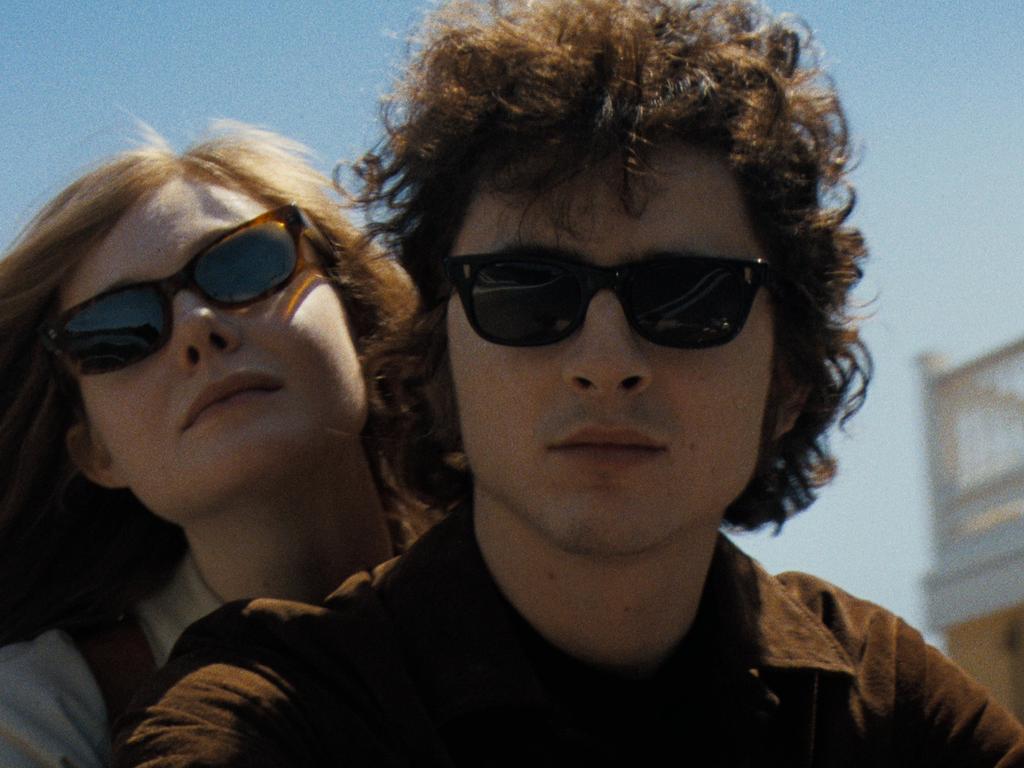Musical biopics are flooding the market
There’s an avalanche of music biopics coming our way, but summing up an artist’s life in a few hours can be tricky business.

It’s a boom time for music biopics — you would need training from an expensive vocal coach to list all the forthcoming ones in a single breath. In the pipeline are movies about the Beatles (four, actually), Michael Jackson (a two-parter), Bruce Springsteen, Louis Armstrong, Boy George and Ozzy Osbourne, plus a Ronnie Spector biopic starring Zendaya, a Bee Gees film directed by Ridley Scott, a Joni Mitchell one by Cameron Crowe, a portrait of Linda Ronstadt starring Selena Gomez, and another of the rock’n’roll pioneer Sister Rosetta Tharpe starring Lizzo. The mother of all planned biopics must be Madonna’s, a saga years in the making and with production still to start.
Things haven’t always been this way. When Gary Busey became the first actor to be Oscar-nominated for playing a pop star in The Buddy Holly Story (1978) and Sissy Spacek won for portraying the country singer Loretta Lynn in Coal Miner’s Daughter (1980), music biopics were quite rare and seldom shook the box office. In the Noughties there was a surge, with Jamie Foxx (Ray Charles in Ray), Reese Witherspoon (June Carter Cash opposite Joaquin Phoenix’s Johnny Cash in Walk the Line) and Marion Cotillard (Edith Piaf in La Vie en Rose) all taking home Academy Awards.
The game changer, though, was Bohemian Rhapsody (2018), which won Rami Malek and his dental prosthetic an Oscar for playing Freddie Mercury and also pulled in the kind of box-office returns that would make even Freddie blush, in the region of $1.4bn. Since then we have had the Elton John biopic Rocketman and Baz Luhrmann’s Elvis, both of which made north of $314m; Bob Marley: One Love ($290m); and the Bob Dylan movie A Complete Unknown (more than $200m and eight Oscar nominations).
In a risk-averse market, biopics of big music names have the kind of built-in audiences that only franchises, sequels and adaptations of best-selling novels and video games can match. Tapping into the interest in celebrities that fuels social media and reality TV, they are attractive to studios, award-hungry actors and the labels and private equity firms to whom many artists, including Dylan and Springsteen, have sold their music rights, which are keen to recoup their investments. The hope is also that an audience weaned on Spotify playlists will turn to the music of the classic artists whose lives are being depicted.
The subjects of the films can quite enjoy it too. “Artists love it,” says Andy Greene, a New York-based writer for Rolling Stone. “It’s flattering when a major star plays you and it broadens your appeal.”
Having a star or their estate on board is essential if you want their music in your film. Being officially endorsed, though, can come at the expense of accuracy. “There are moments in the Queen movie when they veer towards what actually happened but it’s rare. It’s how Brian May and Roger Taylor want their story to be seen, a fairytale version of their lives,” Greene says. A Complete Unknown, he adds, “is the story of Dylan’s life he wants out there”.
James Mangold, the director of A Complete Unknown and Walk the Line, was lambasted by some Dylan heads for having a fan shouting “Judas” at the Newport Folk Festival rather than where it actually happened, the Manchester Free Trade Hall. “There’s no way to do an (entirely accurate) version of four years of someone’s life without making a movie that’s four years long,” Mangold says. “Storytelling is as much an act of omission as anything. We all have friends who don’t abridge the stories they tell and we have to practise Zen meditation to get through. But we also live in a social media time where there’s a cottage industry in pointing out things (that aren’t 100 per cent accurate).”
“If they’re still alive it usually means they’re involved, which usually means they’re going to ruin it,” Greene says. Not in the case of John and Rocketman, which was both inventive and candid.
“Elton was there to answer questions on Rocketman, whereas Bohemian Rhapsody was made by people who loved Freddie and were protecting his memory,” says Dexter Fletcher, the British director of the film, who also took over Bohemian Rhapsody after the departure of its original director, Bryan Singer. “Rocketman is an all-out musical but Bohemian Rhapsody is a film about music, a very soup-to-nuts telling of a well-trodden trope: working-class kid, or kids, finds their way to the big time and faces their demons.”
Some of John’s flamboyance rubbed off on Rocketman, in which Taron Egerton’s Elton levitated at the piano while playing Crocodile Rock. That playfulness, Fletcher thinks, may have influenced Better Man, the recent Robbie Williams biopic in which the singer was played by a CGI chimpanzee.

Mangold makes a convincing case for the virtues of being able to talk to one’s subject. “There was a really intense period when I spent five days with Dylan, going through the script, asking him emotional questions, specific detail questions,” he says.
The eureka moment came when they talked about him going electric. “People have always characterised it as a rebellion against folk, but the biggest thing he illuminated for me was that before he had become a known folk artist he was a giant rock’n’roll fan. Part of the reason he moved into bands was what he perceived as the loneliness of a folk artist. He got jealous of what was happening in other parts of the music world — it was a longing for camaraderie.”
Accuracy is possible in a biopic, Greene says, “if you zoom in really tight”. His favourite is Love & Mercy, a film about Beach Boys co-founder Brian Wilson that focuses on two quite narrow periods: the mid-60s and the late 80s. “It’s shockingly accurate at times. You can tell a broader story by showing a moment in real detail.”

That bodes well for the Springsteen film, Deliver Me from Nowhere, due this year, in which Jeremy Allen White of The Bear plays the Boss during the making of his arctic-bleak Nebraska album in 1981-82.
And it may bode well too for Sam Mendes’s quartet of Beatles movies, all due in April 2028 and starring Paul Mescal as Paul McCartney, Harris Dickinson as John Lennon, Joseph Quinn as George Harrison and Barry Keoghan as Ringo Starr.
Dramatising four pivotal moments from the perspectives of different members is an exciting prospect.
Greene is more worried about the challenge of persuading punters to part with their cash four times in a month, although Mendes’s description of the project as the “first bingeable theatrical experience” suggests that all parts could be consumed in one sitting. Perhaps each will be about an hour long, making it more like a miniseries, with an interval halfway through.
Above all you need to get the music right, and for Mangold that means actors singing for real. The list of stars who lip-synched at least some of their singing sequences is surprising: Foxx in Ray, Malek in Bohemian Rhapsody, Jennifer Lopez as the titular Mexican-American singer in Selena (1997). Angelina Jolie took months of singing lessons for her Maria Callas biopic, but in the end her voice, spliced with the diva’s, barely made the cut.
Timothee Chalamet sang live as Dylan, as did Phoenix as Cash, and Mangold thinks that made a big difference. “On Walk the Line, very much inspired by what Sissy Spacek did in Coal Miner’s Daughter, I learnt that the most gripping version of this kind of movie is one in which the actor owns the performance top to bottom,” he says. “If you want to hear a Johnny Cash record or a Bob Dylan record, go buy it. I don’t really see a reason to have my actor flap their gums while we ‘Milli Vanilli’ (have them mime to) a decades-old track. It always pushes me out of the narrative. To me what’s most interesting is the way a character’s internal life and struggles impact their art and vice versa. To show a moment when a character stumbles upon a line or a riff — I don’t know how I could use pre-existing recordings to do that.”
Filming the lives of Madonna and Michael Jackson are challenges as big as their stardom. There were reports this week that the Jackson film, Michael, directed by Antoine Fuqua (Training Day) and starring the singer’s nephew, Jaafar, will be split into two parts, both to be released next year. There has already been a setback because an early version apparently depicted Jordan Chandler who, in 1993, was the first person to accuse Jackson of sexual abuse. When Chandler agreed to a reported $US23m ($36m) settlement with Jackson in 1994, the singer’s lawyers are thought to have agreed not to depict the Chandlers in any future film. There are rumours of reshoots.
Madonna must be watching with interest. Does she split her biopic, in development since 2020, into instalments like the Beatles and Jackson? Does she play with the formula like John, with whom she buried the hatchet this week after a decades-long feud? That stemmed from him accusing her of lip-synching at shows — surely whoever plays her in the film must sing for real now. The smart money is still on that being Julia Garner from Ozark, although some have suggested that Madge plays herself with CGI de-ageing, which sounds like a terrible idea.
Adding to the intrigue is the likelihood that Madonna will direct and possibly even write the film. “I worry whether she has the ability to look at her own life and see what the important moments are,” Greene says.
I worry about her ability as a director, full stop. Her previous features, Filth and Wisdom (2008), a comedy with Vicky McClure; and W.E. (2011), a drama about Edward VIII and Wallis Simpson, were both dreadful. In a post in November she wrote of the biopic, “I cannot make this in the normal way,” adding: “Should I make the story of my life into a series or a feature film?”
So who will get the treatment next? Don’t hold your breath for a Rolling Stones biopic, Greene says. “There’s a lot of messy stuff Mick (Jagger) doesn’t want to get into — you have to get sign-off from him and Keith (Richards), who don’t agree on a lot of the important stuff.”
Fletcher likes the idea of films about the Clash, the Specials and — with the juicy fraternal friction between Ray and Dave Davies — the Kinks. “Joe Penhall wrote a really good musical about the Kinks called Sunny Afternoon — that would make a really interesting film,” he says.
Mangold just hopes that future subjects are as accommodating as Dylan and Cash.
“They were natural storytellers who understood that my duties were to make a compelling story, that compressing a life down to two hours is a creative act — just like writing a song.”
The Times





To join the conversation, please log in. Don't have an account? Register
Join the conversation, you are commenting as Logout